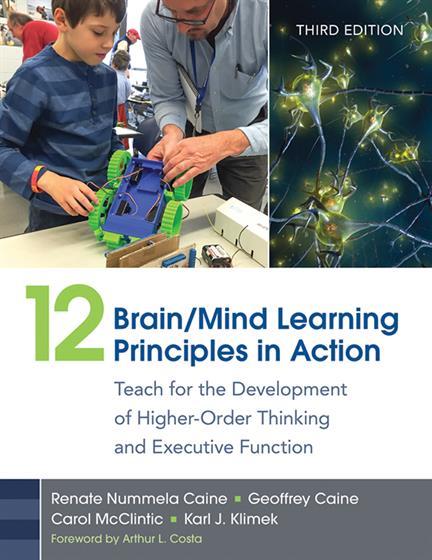Hands-on, Practical Guidance for Educators
From math,
literacy, science, equity, multilingual learners, and SEL, to assessment, school counseling,
and education leadership, our books are research-based and authored by experts
on topics most relevant to what educators are facing today.

12 Brain/Mind Learning Principles in Action
Foreword by Arthur L. Costa
Updated with new scientific discoveries, this indispensable guide links brain research with innovative teaching techniques that strengthen students’ critical thinking abilities and other key skills.
- Grade Level: PreK-12
- ISBN: 9781483382722
- Published By: Corwin
- Year: 2015
- Page Count: 320
- Publication date: July 27, 2015
Review Copies
Review copies may be requested by individuals planning to purchase 10 or more copies for a team or considering a book for adoption in a higher ed course. Request review copy
Other Titles in: Student Engagement & Motivation | Brain-Friendly Teaching & Learning | School Counseling




